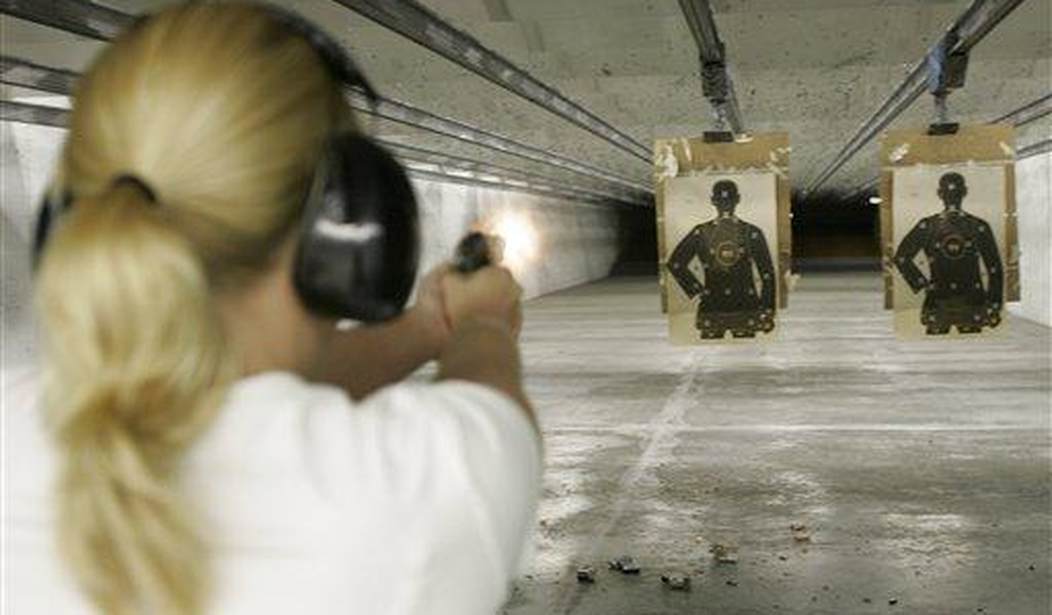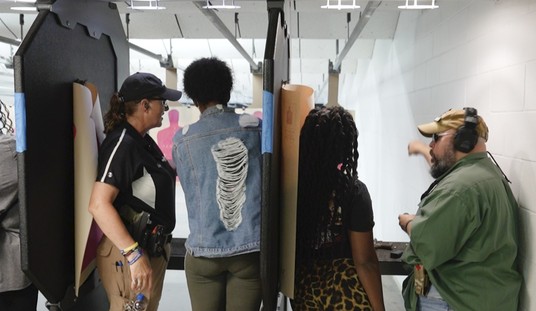A Pennsylvania man has filed a federal civil rights lawsuit against a Delaware County gun store and range alleging that he was the subject of religious discrimination after being told to take off his head covering to comply with the store’s dress code.
Karanveer Singh is a practicing Sikh, and according to his faith he must wear a head covering called a dastaar when out in public. Singh alleges that when he paid a visit to the Targetmaster gun shop and range in Chadds Ford, Pennsylvania he was told by an employee that he needed to take off his dastaar if he wanted to be a customer.
Upon entering the store, Mr. Singh began walking toward the shop counter. A clerk or other employee of Defendant (“Defendant’s Employee”) approached Mr. Singh and told him to take his dastaar off his head, referring to the dastaar as “that thing.” At no time during his visit did Mr. Singh attempt to use or visit the gun range portion of Defendant’s Gun Shop and Range.
Defendant’s Employee then told Mr. Singh that people who wear “things like that” are not “welcome” in the store.
Defendant’s Employee informed Mr. Singh that he was required to follow the store’s “dress code policy” which prohibits all types of headwear in the store, with the exception of forward-facing baseball caps.
…
Defendant’s Employee informed Mr. Singh that the Gun Shop and Range’s “dress code policy” is enforced “regardless of race.” He stated that the policy would apply equally to “black men wearing durags, or white men wearing biker helmets.”
Mr. Singh explained to Defendant’s Employee that, unlike a durag or biker helmet, his dastaar is an article of faith, and that he is required to wear it at all times, in accordance with his faith. As an observant Sikh, he can neither remove his dastaar nor cover it with another object.
Defendant’s Employee stated he understood that Mr. Singh is Sikh as his wife is Indian.
Defendant’s Employee nevertheless refused to allow Mr. Singh to wear his dastaar in the Gun Shop and Range.
Defendant’s Employee never provided any explanation for why the dress code policy exists, or why it has an exception for forward-facing baseball caps.
Instead, Defendant’s Employee informed Mr. Singh that, if he wanted to remain in the Gun Shop and Range, he must either remove his dastaar, or place a baseball cap over it.
Mr. Singh informed Defendant’s Employee that he could not comply with either of these options due to his religious beliefs.
As a result of his refusal to abandon his faith, Mr. Singh was forced to leave the Gun Shop and Range and was unable to shop for goods he was seeking to purchase or engage in any other business there.
According to the complaint, after Singh left the store he called and spoke to a manager, who allegedly denied that the dastaar was religious in nature and questioned what the store should do if a “monk walked in with a 20-foot sword” and claimed it was for religious purposes.
There are always two sides to every story, of course, and the defendants have not had a chance to formally reply to the complaint, so I’m trying to keep an open mind about the alleged actions of the store employee and manager. Having said that, Singh’s attorneys point to several other instances of customers who’ve complained online about the store’s dress code policy interfering with their religious practices.
Attached hereto as Exhibit B is a true and correct copy of a Yelp review (last accessed on July 25, 2023) by a user identified as “Wanda J.” which states: “Staff was rude as he said twice no head coverings besides a baseball cap facing forward. I lifted my niqab (face covering) while he proceeded to say: ‘You would have to take all that off, all that’s optional anyway.’”
Attached hereto as Exhibit C is a true and correct copy of a Yelp review (last accessed on July 25, 2023 by a user identified as “Mahaa B.” which states: “My daughter and son in law [sic] went here tonight and were discriminated against because my daughter is muslim [sic] and so is her husband. My daughter was told she would have to take off her hairscarf [sic].”
Attached hereto as Exhibit D is a true and correct copy of a Google review (last accessed on July 25, 2023) by a user identified as “simranjit singh” which states: “My brother went to PURCHASE a firearm but was REFUSED by an employee for wearing a turban. The turban did not cover the ears. There were customers in the shop with hats on that were being helped but he was refused for the soul [sic] reason of wearing a turban in the shop. We have gone there a few times before and have never had a problem for any reason. Please feel free to teach your employees the difference between a hat and a turban. A turban CANNOT be compared to a hat.” (emphasis in original).
Attached hereto as Exhibit E is a true and correct copy of an article appearing in the Philadelphia Inquirer, at https://www.inquirer.com/philly/columnists/jenice_armstrong/ muslim-woman-upset-after-being-told-to-remove-scarf-at-gun-range-i-jenice-armstrong20171005.html (last accessed on July 25, 2023) reporting that Defendant told a customer named Farida Boyer to remove her head covering, called a khimar, which she wears as part of her Muslim faith.
Singh is alleging that he was discriminated against both for his ethnicity and his religion. While Targetmaster hasn’t had time to officially respond to the new lawsuit, the Philadelphia Inquirer article referenced by Singh’s attorneys does include a quote from a store manager explaining why the policy is in place.
“We do it for safety,” Bob Bonnett told me. “When you shoot a gun, you have the brass casings that fly out of the gun. They can get caught in your clothing. They can get caught, you know, in anything you have on. They can burn your skin. We’ve had actual issues in the past. … This is something we’ve had in place for 25 years.”He added, “We don’t want brass getting caught in any part of your clothing and burning your skin, because a lot of time the reaction is to not always put down the gun.”An inexperienced gun user, Bonner said, could accidentally shoot the weapon while reaching for a burned area.“It’s a safety issue,” he said. “It’s not a personal issue.”
That makes sense if we’re talking about the store’s dress code policy banning things like flip-flops and open-toed sandals, tank tops and “low cut tops”, but given my own firsthand experience with hot brass ricocheting off the brim of my forward-facing ballcap and getting lodged in between my eyebrow and my safety glasses, I can say that the store’s policy on head coverings isn’t going to stop brass from burning a customer’s skin. In fact, telling customers to remove their headgear (with the exception of those forward-facing ballcaps) is going to expose more skin to the possibility of getting hit with a spent cartridge. And in Singh’s case, the “safety issue” might not even apply, since his attorneys say he was never in the range portion of the business nor tried to utilize the range that day.
Again, at this point we only have Singh’s side of the story to go on so I’m reserving judgement here, but I will say more generally that as a Second Amendment supporter who believes that self-defense is a human right and our right to keep and bear arms belongs to us all regardless of race, color, or creed, I want gun shops and ranges to be open and inviting places for all responsible citizens. Your religion, political orientation, gender identity, or preferred pronouns have no impact whatsoever on your Second Amendment rights. Well, your political orientation might if you’re voting for politicians who want to criminalize those rights, but you get my drift.
The Second Amendment belongs to We the People, and we don’t have to all look alike, think the same, or follow the same faith. Leave the bigotry and close-mindedness to the gun prohibitionists while we find common ground in our shared exercise of our fundamental right to keep and bear arms.









